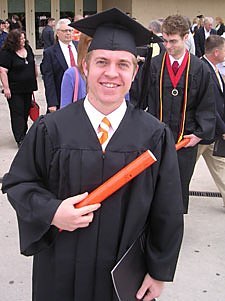April 23, 2012

My recent engagements afforded me opportunities to dialogue with students at universities in Ohio, Tennessee and Minnesota. “The millennial generation” they’re called, born between 1982 and 2002, the majority of them in their late teens and 20s now.
And on my return home, in leading a discussion in a parish on one of the presentations – The Mystery of God – in Robert Barron’s Catholicism series, I was struck by the fact that there was no one under 55 years old in the room.
Shortly thereafter, the Washington Theological Union in Washington, D.C., sponsored a symposium titled, Attending to the Spiritual Landscape of the Millennial Generation. Presenters were Daniel Horan, OFM, a Franciscan millennial and author of Dating God, and Patience Robbins, who has served as a spiritual director for the past 25 years with the Shalem Institute.
Statistics indicate that there is a significant increase in the number of young adults who are interested in religious practice. Oftentimes their putting off of commitments such as marriage or having children is ascribed to delayed maturity or to irresponsibility.
But, according to Friar Horan, there are other factors involved – economic and career-related – such as employment opportunities or the requirement of travel in a job.
This also explains, he said, why they don’t settle into other commitments. “They oftentimes lack roots or stability, are always on the run – and not necessarily by choice.”
When it comes to engaging in faith practices, they’re expressing their interest in different ways than the traditional ones of Sunday Mass, benediction, adoration of the Blessed Sacrament and the rosary. Recent surveys show that while two-thirds of them acknowledge the importance of these practices, only 18 percent are coming to church to participate in them.

What does draw them are service-oriented immersion programs like Peacecorps or Americorps or Spring-break trips to places where they’ll do something like help to build homes or assist in cleaning up an area after a natural disaster. Praxis is first for them.
There is also a curiosity about practices in other religions, like Zen meditation or Muslim fasting or Hindu chanting. While many are interested in the traditional forms of spiritual practice in Christianity, it’s necessary to think outside the box in relating to millennials, said Friar Horan. “They’re interested in questions of deeper meaning, but the ways they express their faith are going to be very different. You’ll have to meet them where they are.”
Ms. Robbins expanded on that theme: “Millennials want genuine, authentic mentors and spiritual guides. Meet and accept them where they’re at, and they’ll come back. Be open and flexible around forms of prayer and names for God. Let it emerge rather than imposing a top-down traditional model of practices.”
Ms. Robbins said the three themes she emphasizes in spiritual direction with millennials are: One, you are beloved of God. Two, cultivate listening for God in your life: Why am I here? What’s my role? Three: Generosity. Be open; let the Divine Love flow through you to others.
“Such an approach is countercultural,” she said, “in the face of the current cultural emphases on ‘more’ and ‘faster’ because neither favors being grounded in the ‘now’. What am I rushing for? There’s nowhere to go and nothing to ‘get’ – it’s here! And the next question becomes: If you’ve already got this deep connection with God, how do you want to cultivate it?”
Her words reminded me of something I saw happen in our family after my father died and my mother lived alone. One of her granddaughters, a nurse working in another state, liked to come and spend days at a time with her. She joined her for her meditation at the beginning of the day, accompanied her to daily Mass and prayed the rosary with her at the end of the day.
And along the way I became aware that this granddaughter had begun going regularly to Mass at her local parish. Her grandmother was her mentor. She accepted her granddaughter where she was, but continued to live her own faith with integrity and conviction, to carry it in living form and to manifest its fruits. Her peace and serenity made of her life a living word. Her granddaughter saw it and, over time, reached out for it.
There is instruction and encouragement in that for us all.
Father Thomas Ryan, CSP, is the director of the Paulist Office for Ecumenical and Interfaith Relations. He has authored several books on spirituality and lives in Washington, DC. You can read more from Father Ryan at tomryancsp.org.